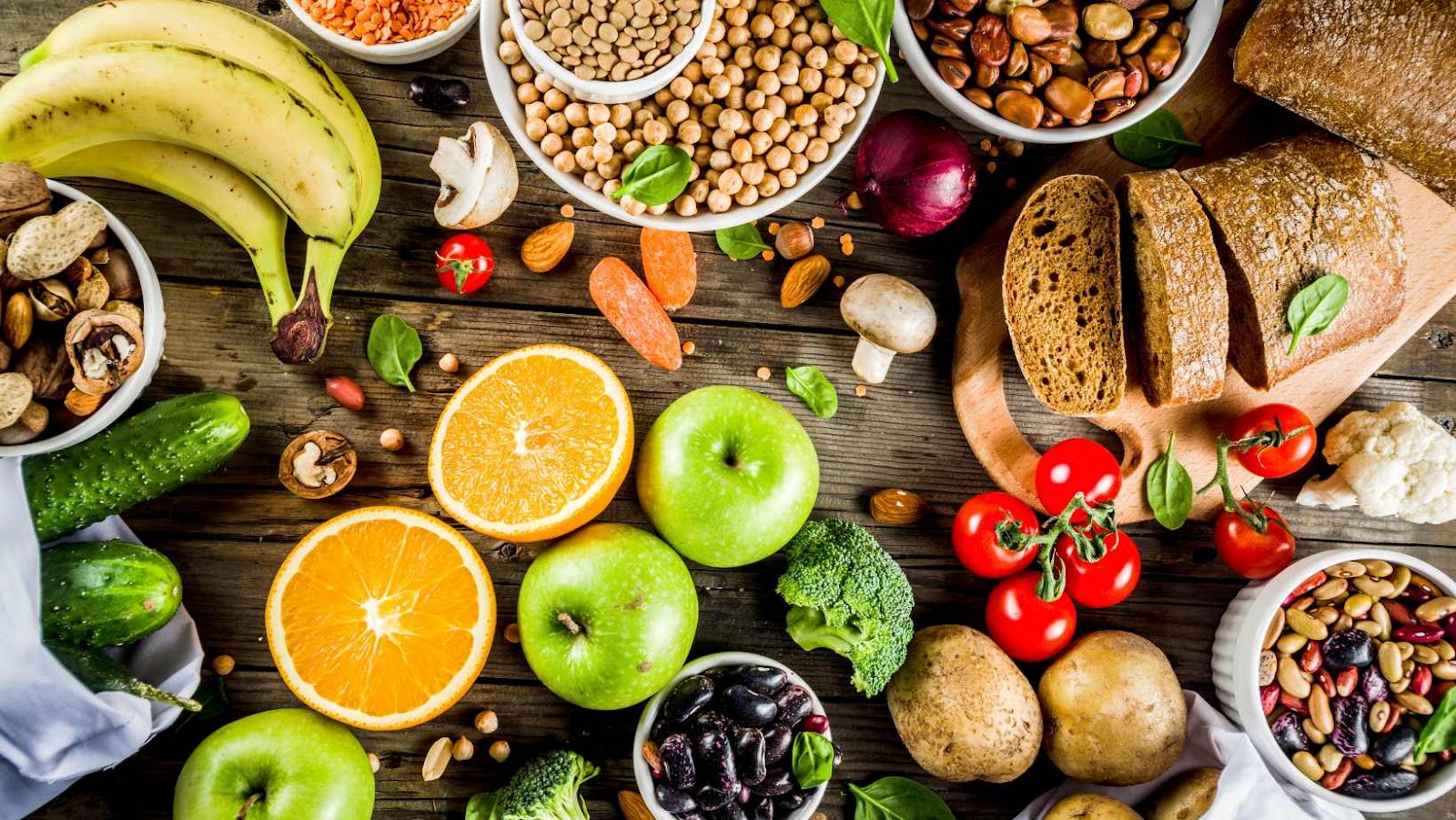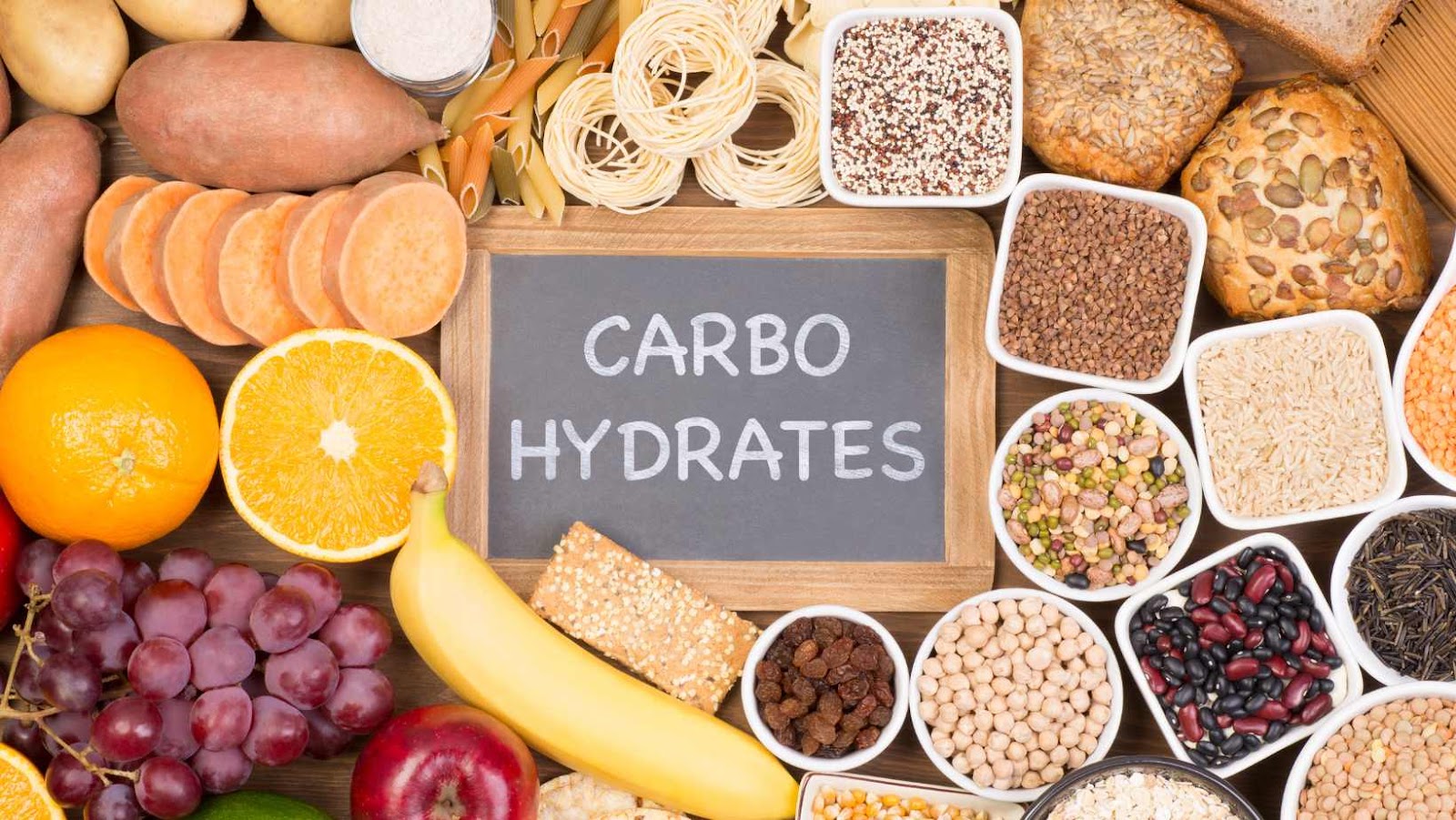When consuming too much carbohydrates, the body is unable to process it effectively and the excess is stored in the body as fat. This can lead to a number of health risks including an increased risk of diabetes and heart disease. Additionally, when animals consume an excessive amount of carbohydrates it can affect the function of their organs and cause their metabolism to become unbalanced, leading to further health issues.
Let’s find out more about the potential health risks of too many carbohydrates.
What Happens to Excess Carbohydrates in Animals?
Consuming high amounts of carbohydrates can have immediate negative effects on your body. When you eat foods high in carbohydrates, your body quickly converts them into sugar (glucose) and releases insulin to move the glucose from your bloodstream into your cells. However, overconsumption of carbohydrates can lead to the following health risks:
|
Risk |
Description |
|
Bloating |
Eating too many carbohydrates in one sitting can cause bloating and discomfort. |
|
Mood swings |
Consuming high amounts of carbohydrates can lead to rapid blood sugar spikes and crashes, resulting in mood swings and fatigue. |
|
Increased hunger |
Carbohydrates can cause a rapid spike in blood sugar levels, causing your body to release more insulin, leading to an increased feeling of hunger and cravings. |
|
Weight gain |
Overconsumption of carbohydrates can lead to weight gain as excess glucose is stored in fat cells. |
It is recommended to consume carbohydrates in moderation and opt for healthy carbohydrate sources such as fruits, vegetables, and whole grains to avoid these negative health effects.
Spikes in blood sugar levels
Consuming too many carbohydrates can result in spikes in blood sugar levels, which can lead to health risks.
Here’s how it happens: When you consume carbohydrates, your digestive system breaks them down into glucose, which enters your bloodstream and raises your blood sugar level.
Consuming too many carbohydrates can cause your blood sugar level to spike, leading to a surge of insulin from your pancreas to bring it back down to normal levels. But over time, this can lead to insulin resistance, which can contribute to the development of type 2 diabetes and other health issues. Therefore, it’s essential to consume carbohydrates as part of a balanced diet and in moderation to avoid health risks. Pro tip: Opt for complex carbohydrates, such as whole grains, fruits, and vegetables, as they take longer to break down and provide sustained energy with fewer spikes in blood sugar levels.
Insulin resistance
Consuming too many carbohydrates can lead to insulin resistance, which can have severe health consequences.
Insulin resistance occurs when your body becomes resistant to the effects of insulin, the hormone that regulates blood sugar levels. This can lead to high blood sugar levels, inflammation, and hormonal imbalances. Ultimately, insulin resistance can cause type 2 diabetes, heart disease, and other chronic health conditions. Carbohydrates are the primary source of fuel for the body, but too much of any nutrient can have negative health effects. It’s essential to consume carbohydrates in moderation and choose complex carbohydrates like whole grains, vegetables, and legumes whenever possible.

Pro Tip: Pairing carbohydrates with protein and healthy fats can help slow digestion and keep blood sugar levels stable.
Weight gain
Overconsumption of carbohydrates can lead to weight gain, which in turn can increase the risk of developing several health conditions such as type 2 diabetes, heart disease, and certain cancers.
When we consume more carbohydrates than we need for energy, our bodies store the excess as fat. Over time, this can lead to an unhealthy increase in body weight and body fat percentage.
To prevent weight gain and reduce the risk of health complications, it is recommended to practice portion control and choose complex carbohydrates, such as whole grains, fruits, and vegetables, instead of simple carbohydrates like sugary drinks and processed snacks.
|
Pro Tip: |
Balancing your diet with a variety of nutrient-dense foods is essential for maintaining a healthy weight and reducing the risk of chronic diseases. |
Long-term Effects of Overconsumption of Carbohydrates
Overconsumption of carbohydrates can have several long-term effects on your health. While carbohydrates are an essential macronutrient, excessive consumption can lead to health problems such as obesity, type 2 diabetes, and heart disease. When you consume too many carbohydrates, your body transforms them into glucose, which raises your blood sugar levels. Insulin is released to regulate your blood sugar levels, and excess glucose is converted into fat, leading to weight gain and obesity. Over time, high blood sugar levels can lead to insulin resistance and type 2 diabetes.
Additionally, a high-carbohydrate diet can increase your risk of heart disease by raising your triglyceride levels and lowering your levels of high-density lipoprotein (HDL) cholesterol.
To minimize the long-term effects of overconsumption of carbohydrates, ensure that you are consuming a balanced diet with the correct proportions of carbohydrates, proteins, and fats.
Pro Tip: Consuming complex carbohydrates found in whole grains, fruits, and vegetables can help regulate blood sugar levels and reduce the risk of health problems associated with overconsumption of carbohydrates.
Increased risk of developing type 2 diabetes
Overconsumption of carbohydrates can increase the risk of developing type 2 diabetes as it causes insulin resistance in the body. When we eat carbohydrates, our body breaks it down into glucose, and the pancreas releases insulin to help cells absorb glucose for energy. However, when we consume too many carbs, the cells become resistant to insulin, and glucose remains in the bloodstream. This can lead to high blood sugar levels and, over time, cause complications like type 2 diabetes.
To prevent this, it’s essential to maintain a balanced diet with appropriate carbohydrate intake. It’s recommended to consume complex carbohydrates such as fruits, vegetables, whole grains, and legumes, instead of simple carbohydrates found in processed foods and sugary beverages. Moderation and variety are key to avoid the health risks associated with overconsumption of carbohydrates.
Increased risk of cardiovascular disease
Consuming an excessive amount of carbohydrates can lead to a higher risk of cardiovascular disease, which is linked to high blood sugar and insulin levels.
When you consume too many carbohydrates, your body turns them into glucose, which enters your bloodstream, causing your blood sugar levels to rise. Your pancreas releases insulin to remove the excess glucose from your bloodstream, which leads to insulin resistance over time. Insulin resistance can lead to changes in your blood vessels’ lining and cause hardening, narrowing and thickening, leading to cardiovascular disease. Simple carbohydrates like refined sugars, white bread, pasta, and other processed foods contribute to this risk. However, whole grains, fruits, and vegetables contain healthy carbohydrates and fiber and reduce the risk of cardiovascular disease.
Pro Tip-Consume a balanced diet with the right amount of carbohydrates and fats to maintain optimal health.

Increased risk of certain cancers
Overconsumption of carbohydrates can lead to an increased risk of certain types of cancer.
Diets that are high in carbohydrates, particularly refined carbohydrates, can lead to insulin resistance, which is a risk factor for certain types of cancer. Insulin resistance promotes the synthesis of the hormone insulin-like growth factor-1, which stimulates cell growth and replication. This, in turn, can cause an increased risk of colon, pancreatic, and endometrial cancer.
To reduce your risk of these types of cancer, it is important to maintain a balanced diet that includes the right amount of carbohydrates, which provide needed energy for our bodies. Try to incorporate more complex, whole-grain carbohydrates into your diet, and avoid or limit refined carbohydrates like white bread and pastries, as well as sugary drinks and snacks.
Pro tip: A diet that is balanced in carbohydrates, healthy fats, and protein promotes overall health and reduces the risk of developing serious health conditions.
How Animals Process Excess Carbohydrates
We often hear of the importance of maintaining a balanced diet with carbohydrates, proteins, and fats. But when it comes to animals, what happens when there is an excess of carbohydrates? How do animals process them and what health risks can be associated with too many carbohydrates?
Let’s dive in to find out how animals process their excess carbohydrates.
Digestion of Carbohydrates in Animals
Carbohydrates are an essential component of an animal’s diet, providing a source of energy and aiding in the digestion process. The digestion of carbohydrates in animals primarily occurs in the small intestine, where enzymes break down complex carbohydrates into simple sugars that can be readily absorbed by the body. However, when animals consume excess carbohydrates, such as in a high-carbohydrate diet, this can lead to health risks such as obesity and insulin resistance. In some cases, animals may experience digestive upset or bloating as their bodies attempt to process the excess carbohydrates. It is important for animal owners to monitor their pet’s carbohydrate intake and provide a balanced diet that meets their nutritional needs. Pro tip: Consult with a veterinarian to determine the appropriate diet for your animal based on its age, weight, and health status.
Storage of Excess Carbohydrates in Animals
Many animals, including humans, store excess carbohydrates as glycogen in their liver and muscle tissues. This stored glycogen can be broken down and used as an energy source by the body when needed. However, if too many carbohydrates are consumed, it can lead to negative health effects. When animals consume more carbohydrates than their body requires for energy production, the excess is stored as fat in adipose tissues. This can lead to weight gain, obesity, and a higher risk of health problems like diabetes and heart disease. It is important for animals, including humans, to maintain a balanced and varied diet that includes a healthy mix of carbohydrates, fats, and proteins. By doing so, excess carbohydrates can be properly utilized or stored without negative consequences to health. Pro Tip – It is always best to consult with a medical professional or registered dietitian to determine the appropriate balance of macronutrients for your individual needs.
Health Risks Associated With Excess Carbohydrate Consumption in Animals
While carbohydrates are essential for energy production in animals, excess carbohydrate consumption can lead to several health risks. Animals break down carbohydrates into glucose, which is used as fuel for the body. However, excess glucose can lead to several health issues, including obesity, diabetes, and liver disease. In animals, carbohydrates are broken down by enzymes in the digestive system before being absorbed into the bloodstream. If the animal consumes more carbohydrates than it needs, the unused glucose will be stored in the liver and muscles as glycogen. However, if glycogen stores are full, excess glucose can be converted into fat and stored in adipose tissue.
Therefore, it is important to monitor and control the carbohydrate intake of animals to prevent these health risks. High-carbohydrate diets should be avoided for animals prone to weight gain or diabetes. A balanced diet with appropriate levels of carbohydrates is crucial for preventing excess glucose accumulation in animals.
Obesity
Obesity is a common health problem in both humans and animals. While carbohydrates are a necessary part of a balanced diet, excessive consumption can be problematic for pets and humans alike.
Here’s how animals process excess carbohydrates:
|
If an animal consumes more carbohydrates than they need, the excess glucose is converted to glycogen and stored in the liver and muscles. Once this storage is full, the body turns the excess glucose into fat for long-term storage. |
Here are some potential health risks associated with eating too many carbohydrates: Weight gain and obesity, type 2 diabetes, and dental issues. Therefore, a balanced diet with an appropriate ratio of carbohydrates, protein, and fat is key to maintaining optimal health in both humans and animals.
Diabetes
Diabetes is a chronic condition that affects how the body processes blood sugar. While humans may struggle with overconsumption of carbohydrates, animals have a unique way of processing excess carbohydrates. When an animal consumes carbohydrates, its digestive system converts them into glucose, which is then stored in the liver and muscles as glycogen. Once the glycogen stores are full, any excess glucose is converted into fatty acids and stored as fat. While animals do not suffer from diabetes due to their unique carbohydrate processing system, humans can experience health risks associated with overconsumption of carbohydrates. These risks include weight gain, insulin resistance, and nerve damage. A balanced diet with the right proportion of carbohydrates, proteins, and fats is key to maintaining optimal health for humans.
Metabolic syndrome
Metabolic syndrome is a cluster of conditions that increase the risk of heart disease, stroke, and diabetes. It is caused by various factors, including excess carbohydrate consumption.
When animals consume more carbohydrates than they need for energy, the excess is converted into fat and stored in the body for later use. However, if this process happens too frequently, it can lead to insulin resistance and other metabolic issues, increasing the risk of developing metabolic syndrome.
In humans, eating a diet high in refined carbohydrates, such as white bread and sugary drinks, has been linked to an increased risk of metabolic syndrome. However, consuming carbohydrates from whole foods, such as fruits, vegetables, and whole grains, has been associated with a reduced risk of the condition. Therefore, it is important to choose whole, unprocessed carbohydrates and consume them in moderation to prevent the risk of developing metabolic syndrome. Pro Tip: Always consult a healthcare professional before making any significant changes to your diet or lifestyle.
